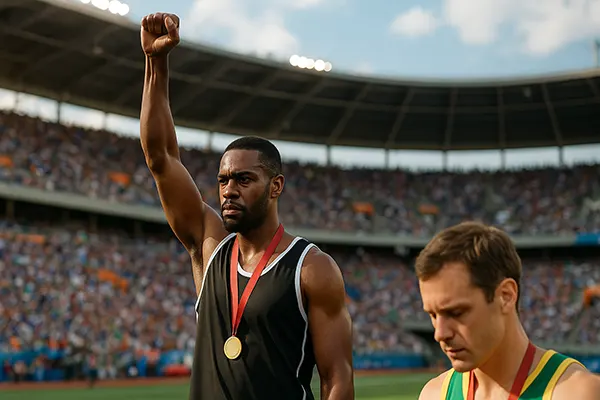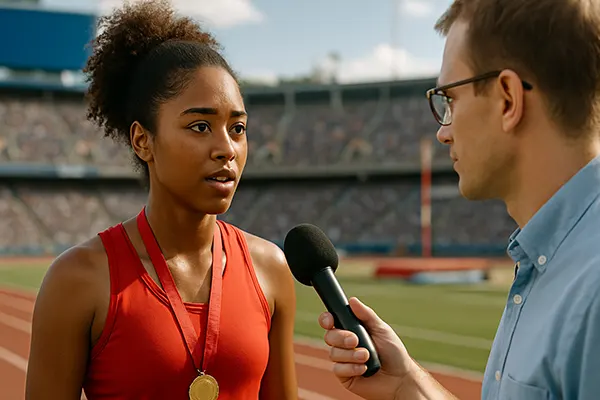Banned Celebrations in Sports History: When Gestures Sparked Fines and Scandals

Throughout sports history, celebrations have been more than mere expressions of joy — they have often become flashpoints for controversy, sparking debate, disciplinary action, and even international headlines. From excessive gestures to politically charged messages, some actions have gone far beyond the traditional boundaries of sportsmanship. This article explores how seemingly spontaneous acts became lightning rods for fines and scandals, changing how athletes express themselves in victory.
Iconic Cases of Banned Celebrations
Several moments stand out in sporting history where athletes faced serious repercussions for their celebratory acts. One of the most emblematic examples is the 1968 Olympics Black Power salute, where American sprinters Tommie Smith and John Carlos raised gloved fists on the podium. Their gesture, symbolising civil rights protest, led to suspension from the US team and international backlash.
Another infamous case occurred during Euro 2012, when footballer Nicklas Bendtner revealed sponsored underwear during a goal celebration. This breach of advertising regulations led to a €100,000 fine and a one-match ban, highlighting how commercial interests intersect with sports ethics.
More recently, NFL star Tyreek Hill was fined for celebrating a touchdown by using a mobile phone hidden beneath the goalpost in a 2022 game. Despite being widely regarded as humorous by fans, the league interpreted it as a violation of unsportsmanlike conduct rules.
The Impact on Athletes’ Careers
The consequences of banned celebrations often go beyond fines. In the case of Tommie Smith and John Carlos, their athletic careers were significantly affected, and both struggled to find professional opportunities in the immediate aftermath of the protest. Their actions were vindicated historically, but the price was high at the time.
For modern athletes, social media magnifies the visibility and repercussions of controversial gestures. Bendtner’s incident, for example, was shared widely online, making him a target for both ridicule and criticism. This media amplification has made athletes more cautious, or at least strategic, about how they celebrate.
In some cases, sanctions can damage a player’s reputation with sponsors. Commercial partners often distance themselves from athletes involved in controversial incidents to protect their brand image, making the long-term cost of a celebration potentially enormous.
Political and Cultural Messages in Celebrations
Sports celebrations have occasionally been used to deliver political or cultural messages. This trend, while powerful, has triggered swift reactions from governing bodies. FIFA, the IOC, and other sports organisations have strict policies banning political gestures on the field of play.
One prominent case involved Swiss footballers Granit Xhaka and Xherdan Shaqiri at the 2018 World Cup, who made an eagle gesture symbolising Albanian nationalism. Though not explicitly political in their own explanations, the gesture was interpreted as provocative and earned each a hefty fine.
Similarly, basketball player Enes Kanter Freedom has been outspoken about human rights issues during games and interviews. Though not fined for specific celebrations, his political stance has affected his career, including contract negotiations and media attention from national governments.
Where to Draw the Line?
The challenge for sports authorities lies in distinguishing between genuine self-expression and gestures that may incite controversy or disrupt harmony. Governing bodies frequently cite neutrality in sport as a justification for penalties, aiming to preserve the focus on competition itself.
However, critics argue that this approach often silences voices from marginalised communities or discourages advocacy through non-violent, symbolic actions. In many cases, what is penalised is not the content but the context — who the athlete is, what they represent, and the current political climate.
Finding this balance remains one of the most contentious debates in modern sports regulation. Calls for reform are growing, particularly among athlete unions and advocacy groups, demanding clearer rules and greater tolerance for personal expression.

Modern Rules and Their Enforcement
Today, most professional leagues and Olympic federations maintain codified guidelines on celebrations. These rules are often buried in athlete conduct manuals and include stipulations on clothing, props, gestures, and time duration of celebrations.
For example, FIFA rules prohibit messages of a political, religious, or personal nature on shirts or undergarments. Violations can result in fines, bookings, or suspensions. The NFL enforces a list of banned celebrations and applies escalating punishments for repeat offenders.
Yet enforcement can be inconsistent. While some players are reprimanded immediately, others receive only warnings or have their actions overlooked entirely. This disparity fuels debate over bias, favouritism, and cultural misunderstanding in enforcement practices.
Reevaluating Celebration Norms in 2025
As of June 2025, sports authorities are under increasing pressure to modernise celebration policies. Public sentiment has shifted towards supporting athletes’ rights to self-expression, especially in light of global movements for social justice and identity recognition.
Several federations have begun reviewing their regulations. The International Olympic Committee, for instance, announced a panel to reassess Rule 50, which governs political gestures. Similarly, football associations are consulting athlete unions for input on revising conduct policies.
This evolution signifies a broader cultural transformation within sport. What was once labelled as disruptive or offensive is now being reconsidered as meaningful expression, worthy of protection — not punishment.
